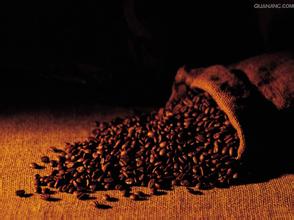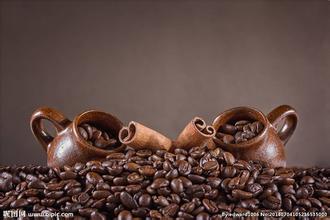Flavor description of Italian concentrated and ground coffee beans; introduction to the characteristics of taste and quality in producing areas
Flavor description of Italian concentrated and ground coffee beans; introduction to the characteristics of taste and quality in producing areas
There are many other factors that affect the degree of grinding, including the roasting degree of coffee beans (although coffee beans used by Espresso should use a deeper roasting degree, but sometimes different roasting degrees may be used to roast formula beans for richer taste), blended recipes, and so on. All of the above are the most common and can be mastered by baristas. The previous sections are all about the adjustment of the basic factors in the production process in order to meet that taste standard on the premise of understanding the good taste of Espresso (see the taste of Espresso). There are many places in the world of Espresso that we don't fully understand, and we would like to explore this wonderful world of coffee with you. Humidity factors play a role not only in sunny and rainy days, but also at different times of the day. Generally speaking, the humidity in the morning and evening is higher than that at noon, so according to the influence of humidity factors, the degree of grinding should be thickened in the morning and evening, and the change of humidity at noon is also one of the factors affecting the degree of grinding. When the humidity is relatively high, the wet speed of the ground coffee powder is very fast, and there is already a slight humidity when filling the powder and cloth powder. If a fine grinding degree is used, the coffee flavor components have already reacted with the air with high humidity and become messy and impure, while the coffee powder is easier to be compacted and the extraction process is longer, which makes it easier to extract the bad taste and make the overall coffee taste muddy. Therefore, in the case of relatively high humidity, it is not suitable for a finer degree of grinding, it will be better to use a slightly thicker degree of grinding. On the other hand, in the case of relatively low humidity, coffee powder is ground out after contact with the air, the speed of oxidation reaction will also be accelerated, if the coarse grinding degree is used, then the coffee powder oxidation and flavor composition changes together make the extracted coffee taste will be less, lack of depth and mellow feeling, so the degree of grinding should be adjusted appropriately. Of course, after adjusting the degree of grinding, it is necessary to adjust the strength of pressing powder accordingly.

Important Notice :
前街咖啡 FrontStreet Coffee has moved to new addredd:
FrontStreet Coffee Address: 315,Donghua East Road,GuangZhou
Tel:020 38364473
- Prev

Is there coffee powder in the capsule coffee?
Is there coffee powder in capsule coffee? in order to appeal to consumers, coffee capsules or powder bags can not only produce different tastes of espresso, but also combine the preferences of most people to produce coffee capsules that can be made for cappuccino, mocha or latte, such as Nespresso's Dolce Gusto series capsules and K-fee coffee capsules.
- Next

How to choose Italian Coffee Machine-Classification of Italian quantitative Bean Mill
Italian coffee machine how to choose bean grinder-Italian quantitative bean grinder classification household bean grinder can also be used as a decoration, and the number of people to one more grinding, or electric to facilitate. According to the structure of the bean grinder, there are bean grinders that use vertical and horizontal groove blades to cut coffee beans and bean grinders that grind coffee with molars. Each has its own advantages, and the situation of business use tends to
Related
- Beginners will see the "Coffee pull flower" guide!
- What is the difference between ice blog purified milk and ordinary milk coffee?
- Why is the Philippines the largest producer of crops in Liberia?
- For coffee extraction, should the fine powder be retained?
- How does extracted espresso fill pressed powder? How much strength does it take to press the powder?
- How to make jasmine cold extract coffee? Is the jasmine + latte good?
- Will this little toy really make the coffee taste better? How does Lily Drip affect coffee extraction?
- Will the action of slapping the filter cup also affect coffee extraction?
- What's the difference between powder-to-water ratio and powder-to-liquid ratio?
- What is the Ethiopian local species? What does it have to do with Heirloom native species?

